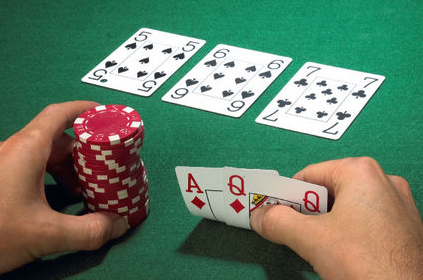The Basic Structure of a Poker Hand
In the realm of poker, particularly in popular variants like Texas Hold’em and Omaha, understanding the term ‘flop’ is fundamental. But before we delve into its specifics, it’s essential to recognize the basic structure of a poker hand. A typical hand of poker has several stages: preflop, the flop, the turn, and the river. Each stage represents a round of betting and the revealing of community cards.
Understanding the Flop: An Integral Part of the Game
The ‘flop’ in poker refers to the second stage of a poker hand, following the ‘preflop’ stage. It is during the flop that the first three community cards are dealt face-up on the ‘board’ (the center of the table). These cards are shared by all players and are used in combination with their private hole cards to form the best possible five-card poker hand.

The Significance of the Flop: Shaping Your Strategy
The flop is a pivotal moment in a poker hand as it reveals half of the total community cards that will be dealt. The three cards can significantly influence the strength of a player’s hand and their potential to create a winning combination. Thus, it shapes the strategic decisions a player must make, such as whether to bet, check, call, raise, or fold.
Reading the Flop: Assessing Your Hand Strength
After the flop, players need to evaluate the strength of their hand in relation to the community cards. This evaluation requires a good understanding of poker hand rankings and the ability to assess the potential of your hand to improve in the later stages of the game. Recognizing patterns, like potential straights or flushes, is a skill that becomes crucial at this stage.
Flop Play: The Game Changer
Properly understanding and interpreting the flop can dramatically alter the course of a poker hand. By accurately assessing the flop and its implications, a player can determine their odds, calculate risks, and make more informed decisions. Whether a player chooses to pursue aggressive play or adopt a more cautious approach heavily relies on the flop outcome.
In summary, the ‘flop’ is a dynamic part of poker that is central to shaping game strategy and overall play. It is a term that every poker player must understand to navigate the complexities of this intriguing card game effectively.

